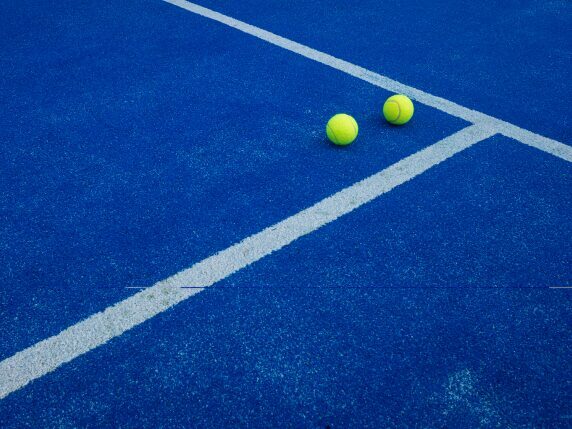The rise of padel tennis in the UK has been remarkable, with over 1,000 courts now established across the country. As the sport’s popularity soars, both landlords and sports operators are seizing the opportunity by transforming underused commercial or leisure sites into thriving social-sport venues, giving communities new places to play, connect and compete.
However, with that rapid growth comes a unique set of challenges: leasing suitable sites quickly, whilst ensuring that each agreement is watertight and commercially balanced. Every padel site involves unique property, planning and operational issues, from specialist fit-out works to shared access, facilities and parking.
Key Considerations
Padel clubs aren’t traditional leisure facilities. They’re hybrids - part sports centre, part social hub. That mix can affect clauses in your lease. Harper James has been instructed by numerous landlords and tenants in connection with leases for padel sites. We have sector-specific expertise and are experienced in addressing key considerations such as:
Specialist fit-out and reinstatement
Each padel facility usually requires specialist conversion and fit-out works in building courts, resurfacing, installing fencing, lighting, and creating clubhouse or hospitality spaces. It is vital for the parties to document consent to these works and whether the tenant will have reinstatement obligations at the end of the lease. Negotiating sensible reinstatement provisions upfront can save significant costs later.
Use clauses that reflect reality
Most leases limit what the premises can be used for. A narrow “sports use only” clause might not cover coaching, retail or hospitality, all of which are vital revenue streams for a modern padel operation. Use clauses may need to allow for:
- Court hire and coaching
- Retail sales of equipment and clothing
- Food and beverage operations
- Social events and community activities
Shared access, parking and other rights
Padel facilities are often located within larger, multi-use sites, sharing entrances, communal spaces, changing facilities, hospitality areas and car parks with the landlord and/or other occupiers and customers. The lease must clearly set out access rights, hours of use and maintenance obligations for communal facilities to ensure that padel tenants have all the required rights for efficient use and to prevent future disputes.
Repair and maintenance
High-wear areas, such as synthetic playing surfaces and floodlights, can create unique maintenance demands. A tailored approach to fit-out, repair and maintenance obligations may therefore be required.
Planning and change of use
Some sites may need planning consent for the required use class for a padel facility. It’s vital to check this early, as operating without the right permission can breach lease terms and potentially invalidate insurances. Harper James can assist with initial searches and checks and direct clients to planning specialists for appropriate advice in this regard. This may lead to the transaction to be structured differently if planning consent for change of use is a pre-requisite to entering into the lease, which can be dealt with via the parties entering into an agreement for lease conditional upon the relevant planning consent being obtained.
Rents
Flat-rate rent arrangements may not be suitable for new padel businesses; rents linked to turnover to be more beneficial for both parties.
Growth through smart leasing
As operators expand their network nationwide, their goal is consistency, not just in brand and member experience, but in legal terms. This means that each site’s lease must follow a reliable framework while still adapting to the specific property’s requirements.
We support both landlords and tenant operators by:
- Heads of Terms: Advising at draft heads of terms stage to capture key commercial positions (fit-out, use, repairs, access, break clauses) so each new site starts from a strong baseline.
- Proactive risk management: Reviewing draft heads of terms at the outset to identify planning, title or operational issues to prevent costly delays or disputes later.
- Efficient negotiation: Liaising directly with the other parties’ agents and solicitors from an early stage to maximise efficiency.
- Alignment of legal and operational needs: Ensuring lease provisions match operational realities taking into account use requirements, additional services such as hospitality, coaching and retail, required opening hours and the specific nature of the site for shared services, etc to protect the interests of both parties.
- Balancing speed, cost and control: In fast-moving sectors like padel, timing is everything. Landlords want quick completions; investors want to see growth. The legal process needs to keep pace without cutting corners.
Common pitfalls
Even the most experienced teams can be caught out by the detail. The most common issues we see include:
- Restrictive use clauses that block ancillary revenue (hospitality, retail, events).
- Reinstatement obligations which have not been tailored to the parties’ specific requirements.
- Vague access, parking or other rights potentially leading to disputes with other occupiers and users.
- Failing to deal with planning issues, including consent for fit-out works as well as change of use.
- Lack of clarity as to sharing facilities within the landlord’s retained land, such as changing and hospitality areas.
- Obtaining consent to fit-out works contemporaneously with the grant of the lease to avoid delays in starting works and opening for trade.
Such risks can be avoided with early engagement of a solicitor who understands both property law and the operational realities of running padel and sports facilities, enabling transactions to proceed as smoothly and efficiently as possible.
Final thoughts
Padel is booming, and so are the opportunities for both landlords and operators who can seize the moment with well-structured leases.
Getting the legal detail right is essential. Start with a clear definition of your operational and commercial needs. Standardise your legal approach as much as possible. And, above all, partner at an early stage with legal advisers who truly understand the practicalities and priorities of the sports and leisure sector.
Whether you are a landlord looking to maximise the value of your site or a padel operator seeking new venues, our commercial property solicitors work with leisure and sports operators nationwide to secure leases that support long-term growth.







